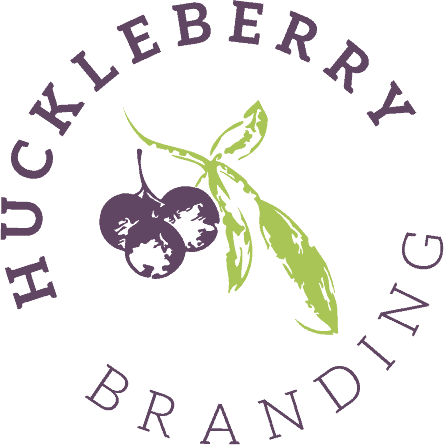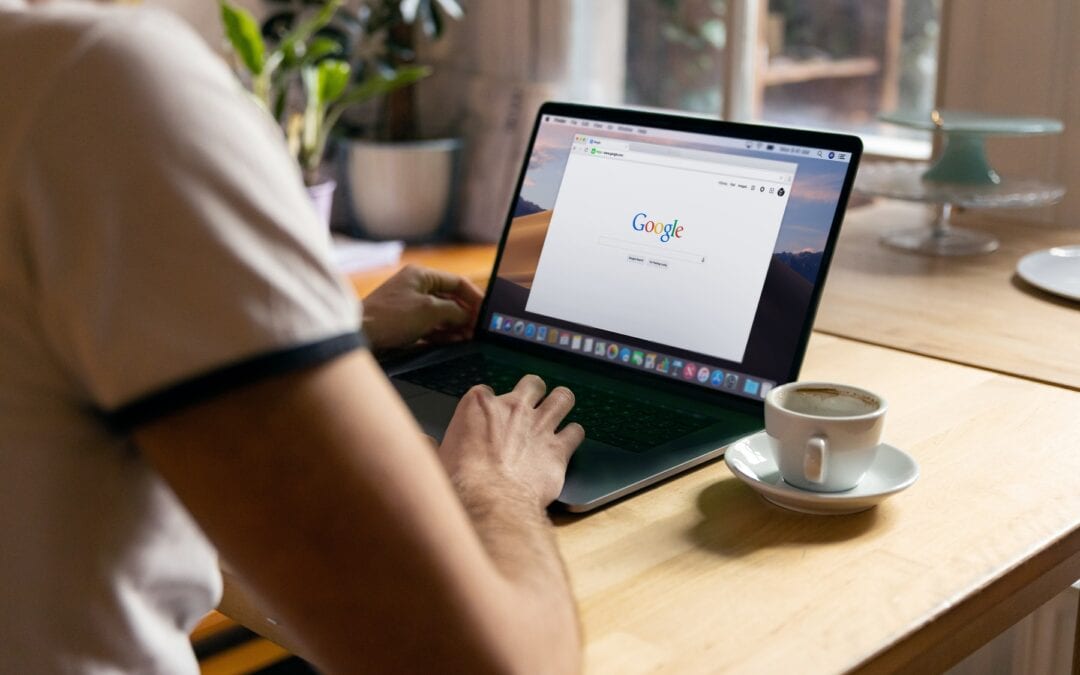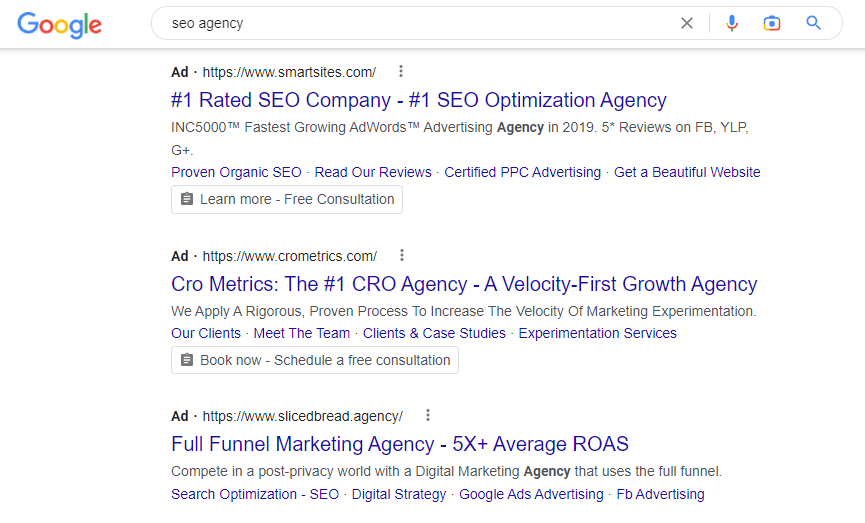Is organic search equally as beneficial as paid search? Why pay for keywords when you can organically increase your traffic? Are organic and paid search both SEO? Which one is better? These are probably just a few of the questions you’ve asked yourself while navigating the organic SEO and paid search world. It’s important to know the differences and similarities between the two because organic and paid search work together, but they also can compete against each other, which can complicate your SEO strategy.
What’s the Difference Between Organic and Paid Search?
In a nutshell, paid search ads are placed above organic search results. They appear at the top of the SERP so that users see them first. Companies pay the search engine anytime someone clicks on the ad. Paid search ads will absolutely result in quicker results. However, it’s important to consider that when you stop paying for paid search ads, the traffic from those keywords will immediately disappear.
Results from organic SEO tactics, on the other hand, are long-lasting. Although it may take longer for Google to recognize and rank organic keywords, your keyword rankings won’t immediately disappear if you shift your SEO strategy.
How Does Pay Per Click Work, and What Happens When You Stop Paying?
When using PPC (pay-per-click), you are paying for a search result to appear whenever that specific keyword is typed into a search engine. Essentially, you’re paying for impressions “above the fold” on the first page in Google or other search engines, as evidenced by the small “Ad” notification above your website. So, when you stop paying for that keyword ranking, all those impressions and clicks from those paid keywords immediately dissipate. PPC is essentially the fast-track way to appear on page one of Google for any keyword you want (and are willing to pay for).
What Happens If You Stop Paying for Organic SEO?
If you stop focusing on your organic SEO or stop paying an SEO company to monitor and maintain your rankings, your keyword rankings will not disappear immediately. While some may fade as new competitors enter the space, the ranking decreases are much more gradual. In fact, some rankings can continue to last for years in those top spots.
What’s an Example of the Overall Impact of Organic Search?
In 2018, Huckleberry Branding worked with a client to create a lead magnet (a free, downloadable PDF available to website visitors in exchange for their email address) and optimized the lead magnet landing page for the keyword phrase “free office layout guide.” Through an organic search strategy, they got this client’s top rankings on page one (#1-10 in Google’s search engine results page, or SERP). While they haven’t touched that page or done anything extra to maintain its rankings (the client even paused their consulting services during COVID, then just came back about a year ago), they’re STILL ranked #2 for that keyword. Even now, five years later, at the time of writing, this client continues to receive four to five new email subscribers each month for that particular lead magnet.
When Should You Use Paid Search?
If you’re already utilizing an organic search strategy and have some leftover marketing dollars in your budget, adding another layer of marketing with paid search is a great idea. The best way to leverage the benefits of paid search is to pay for keyword placement on highly relevant, bottom-of-the-sales-funnel keywords for which you do not rank in top spots organically. This, coupled with a strategy of ranking for less competitive, lower-hanging fruit keywords organically, expands the total breadth of keywords that you can capture in search engines that ultimately drive brand awareness, leads, and conversions on your website. Essentially, search ads are an excellent “keyword gap filler” to supplement your organic SEO efforts.
What Paid Search Strategies Are Related to Organic Keyword Rankings?
Strategy #1: The “Gap Fill” Technique
Target keywords that are not ranking organically
Employ the “gap fill” technique by targeting keywords that currently DO NOT rank on page one organically. This expands the breadth of keywords for which you rank overall. This is a great strategy for small ad budgets! Although we tend to favor the “keyword gap filler” method for most of our clients, there is also another strategy for those with much higher budgets to spread across both organic and paid search strategies.
Strategy #2: The “Keyword Dominance” Technique
Pay for keywords that double your presence in SERPs
There is actually another SEM strategy that DOES display search ads using the same keywords for which you rank organically on page one. Essentially, you’re doubling your presence on page one with ads and organic results. There are studies that indicate that the more exposure someone has to a brand, the more likely the searcher is to click on that brand, so the double exposure solidifies that you’re the best company for the job in the searcher’s mind. In fact, a searcher is more likely to click on the organic result, not the ad, because they see it as more authentic, even though both results are for the same company. This strategy is typically reserved for large brands with significant budgets.
Are There Any Other Ways Organic and Paid Search Work Together?
Increasing traffic to your site overall increases your organic domain authority. This makes it easier for you to compete with highly competitive keywords. Additionally, it can help increase your overall brand recognition!
When deciding between organic or paid search, it’s essential to have a clear strategy and overarching goals in place. Additionally, consider how both organic and paid search might already be working together or against each other if you’re currently using both tactics. Lastly, make sure that whatever strategy you use, you’re doing it to optimize results.



